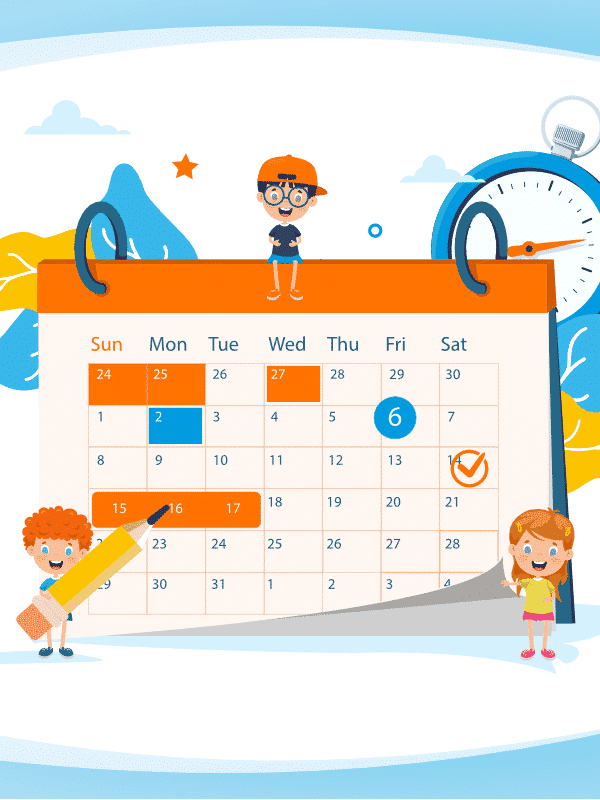At TruFluency Kids, we’re driven by a passion to help kids become bilingual. ALL kids. Sometimes, though, we hear from parents who worry that learning a new language could actually harm their children.
Some of these parents fear exposing their kids to two languages when they’re very young will cause speech delays.
Other parents have kids who have already been diagnosed with a delay or disability. And they wonder if their children can learn two languages or if it will cause additional delays for them.
I’m a mom myself, and I totally get where these parents are coming from. We make all of our decisions based on what’s best for our kids, right? And the bottom line is that different things work for different families.
Whatever decision you make for your family, just make sure that it’s based on current, credible research. I’ve met parents who have gotten inaccurate guidance on bilingualism.
They might have heard outdated “conventional wisdom” from family members, the Internet or even their pediatricians. In this article, I want to review what experts have actually discovered about bilingualism and speech and development delays.
Now this is a big, complex topic. So you’ll definitely want to do additional research about your family’s specific situation. (The links in this article can be a great starting point.)
Does Bilingualism Cause Speech Delays?
One of the biggest takeaways I want you to get from this article is that exposure to another language does not cause speech delays. The roots of this misconception make me sad. Writing for KQED, journalist Izzy Bloom says:
Before the 1960s, psychologists viewed bilingualism as a disability in any child’s development. The “language handicap” theory, as it was known, can be traced back to anti-immigrant sentiment in the early 1900s.
But, over the years, research has revealed a far different reality:
Learning two or more languages starting at birth will not delay your child’s speech. They have the same language trajectory as a mono-language learner.
That’s from speech-language pathologist Michael Tatro of Say and Play Speech. She also explains that some parents may assume that their toddler has speech delays due to bilingualism because they don’t know as many words in their dominant language as their peers do.
At 18 months, toddlers should have at least 10 to 20 words in their speaking vocabulary. Now if your child is exposed only to English, all of those 10 to 20 words will, obviously, be English ones.
But if they are spoken to in both Spanish and English, 10 of their 20 words might be English and 10 Spanish. That’s actually not a sign of speech delays. Neither is switching between languages in the same sentence.
Can Kids with Speech Delays Become Bilingual?
I would answer “definitely”! And speech-language pathologists agree with me. Don’t let anybody tell you to pick just one language even if your child is speech delayed or has a speech disorder. That is not at all backed by research.
That’s another great quote from Michael Tatro. Kristina Doyle, who works with a nonprofit serving families with special needs, says that even if your child has speech delays, you can still enroll them in a dual-language immersion school.
In fact, being exposed to two languages can even help kids with delays express themselves and improve their overall language outcomes.
Lauren Lowry, who works with a nonprofit that helps children with communication delays, shares research about some specific conditions and how they affect language learning.
First, there’s Specific Language Impairment, or SLI. This disorder affects up to 10 percent of children in kindergarten, according to the National Institute on Deafness and Other Communication Disorders. You may also hear SLI referred to as developmental language disorder, language delay or developmental dysphasia.
“Young children with SLI learning two languages at the same time do not demonstrate any greater difficulties in their two languages, as compared to monolingual children with SLI,” Lowry writes “Simultaneous bilingual children with SLI demonstrate the same challenges as monolingual children with SLI, but not any extra burden or difficulties.”
There’s also good news for families of children with Down Syndrome. Lowry cites a study comparing kids with Down Syndrome being raised in monolingual homes to those being raised in bilingual homes. Again, no negative effects of bilingualism were found.
A study of children with Autism Spectrum Disorder, or ASD, had similar results. Bilingual kids with ASD had similar vocabulary scores to monolingual kids with ASD.
How We Can Help
I want to wrap up with a finding that I found especially interesting. So we’ve already established that being in a bilingual home or language-immersion classes does not cause or worsen speech delays. But do you know what does? Here’s a quote from speech pathologist Meagan Horn.
Parents who try not to use their native language may make it harder for a child to learn any language well, since it may limit the quality and quantity of language exposure that the child is receiving at home.
In other words, use the language you are most comfortable with when you speak to your child — even if it’s not the dominant language in your culture or even your household. The important thing is just that you’re talking to your child a lot.
I hope this article has eased any concerns you may have about raising bilingual kids. If your child is not experiencing speech or other delays, there’s absolutely no reason to believe that exposure to a second language will cause problems.
If your child has a diagnosis that affects their speech, I think you have plenty of reasons for optimism that they can still become bilingual and maybe even benefit from hearing two languages. Like I said before, just do your research and seek out expert opinions on your child’s specific situation.
And if you want your child to learn Spanish, please know that all kinds of kids feel right at home in TruFluency Kids’ online classes. You can find a class that’s perfect for your child’s age and experience level with Spanish. Our instructors are native Spanish speakers who also have a special knack for making classes fun and engaging.
We’d love to tell you more! Just contact us to set up a call.


